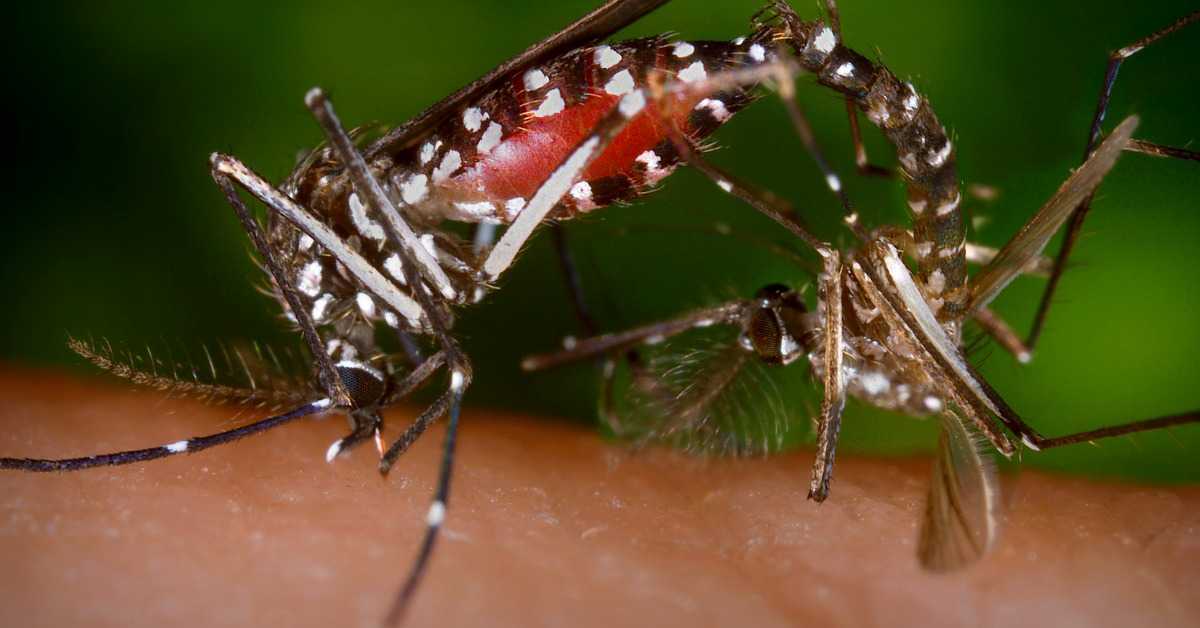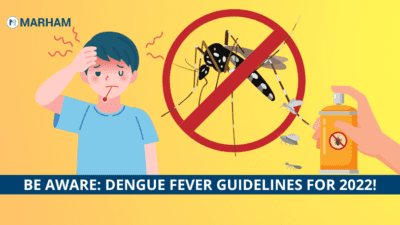Pakistan has been suffering from major outbreaks of the dengue virus for the last two decades which should be a cause of concern for everyone. People get infected with dengue throughout the year and the highest cases are reported in the post-monsoon period and during floods.
Since we are on the verge of entering the post-monsoon period and there have been floods in different parts of the country in 2022, it is best to be aware of this disease.
Let’s have an in-depth look at the sign and symptoms of dengue fever, also its causes, treatment, and prevention in this health blog.
Read Also: Which fruits can be eaten in dengue?
Dengue Fever in Pakistan:
“Dengue is endemic in Pakistan, with the last notable outbreak, with 53,498 cases and 95 deaths, being reported between September to December 2019.” – World Health Organization (WHO)
Pakistan had the first outbreak of dengue fever in 1994, but it become a yearly trend later in 2005 after the major flood. Ever since 2010, the people of Pakistan have been facing dengue fever every year. Most cases have been seen in the provinces of Punjab, Khyber Pakhtunkhwa, and Sindh.
According to the Dengue Response – Final Report of Pakistan 2021 presented by the International Federation of Red Cross And Red Crescent Societies:
“From 1 January to 25 November 2021, the country reported 48,906 cases, including 183 fatalities. The number of instances increased in 2021, mainly in Lahore and the twin cities (Rawalpindi and Islamabad).”
Islamabad saw a constant surge in dengue fever cases throughout the latter part of 2021, putting considerable strain on public and commercial hospitals during the already existing COVID-19 pandemic.
As we enter the last months of the year 2022, it is important to understand all the potential aspects of dengue fever so we can keep ourselves safe.
Book your Dengue NS1 Antigen Test Online
Causes of Dengue Fever:
The Dengue virus (DENV) is the cause of dengue fever. It is a viral infection that can travel to human blood if an infected mosquito bites you.
The two mosquitos that mostly transmit dengue are:
- Aedes aegypti
- Ae. albopictus


Types of Dengue Virus:
The dengue virus belongs to the Flaviviridae family and has four different types of dengue virus. They are as follows:
- DENV-1
- DENV-2
- DENV-3
- DENV-4
It is possible to develop permanent immunity to the type of virus you get after recovering. However, you can still be affected by the other types of viruses. Subsequent infections with different types increase the likelihood of getting severe dengue.
Also, read 9 Ways to Increase Platelet Count in Dengue Fever.
Signs and Symptoms of Dengue:
There are 7 warning signs and symptoms of dengue fever that are the necessary criteria to confirm the virus. These include:
- Fever or history of recent severe fever
- Hemorrhagic symptoms
- Low platelet count (below 100,000/mm3)
- Objective evidence of “leaky capillaries:”
- Increased hematocrit (20% or more over baseline)
- Low albumin
- Pleural or other effusions
Dengue Fever Temperature Pattern:
The temperature pattern of dengue fever usually has two phases, it stays for one or two days and then goes away. In some cases, you can enter a critical phase after your fever goes away. This critical phase has diffuse leakage of plasma that typically stays for two days or less.
5 Steps for the Prevention of Dengue:
You can take the following precautions for the prevention of dengue virus:
1. Eliminate Mosquito Egg Laying Sites
To prevent mosquitoes from breeding, it is important to eliminate their larval sites by removing or covering containers that can hold water such as buckets, drums, vases, and tires.
It is also important to change the water in pet dishes and flower pots on a regular basis. You can also help to eliminate potential breeding sites by supporting local efforts to reduce mosquito populations.
This can be done by emptying water from tires, buckets, and other containers; getting rid of unused containers; and filling in or draining puddles, ditches, and hollows.
2. Use Mosquito Repellents
Reducing the number of adult mosquitoes will also help to reduce the spread of dengue. This can be done by using mosquito nets and insect repellent, and by wearing long-sleeved shirts and pants when outdoors.
3. Get Rid of Standing Water
In addition, it is important to get rid of standing water around your home where mosquitoes can lay their eggs. This includes water in gutters, birdbaths, and pet dishes. You can also help by making sure that your swimming pool is properly chlorinated.
4. Precautions while Travelling
If you are traveling to an area where dengue is present, it is important to take steps to avoid being bitten by mosquitoes. This includes using mosquito nets and insect repellent and wearing long-sleeved shirts and pants.
5. Limit Outdoor Exposure
You should also avoid being outdoors during peak mosquito-biting hours, which are typically from dawn to dusk.
By taking these simple precautions, you can help to prevent the spread of the dengue virus.
Also, see How Can Dengue Virus Be Dangerous For Your Child?
Dengue Fever Treatment Guidelines 2022:
“Early diagnosis and suspicion of DF in primary care might reduce the complications if handled properly.” –Dengue in Pakistan research
There is no specific medicine or vaccine for dengue fever. Treatment focuses on relieving symptoms and supporting the body as it fights the infection. You can do the following:
- People with dengue fever should get plenty of rest, drink lots of fluids, and avoid pain relievers that contain acetaminophen.
- Aspirin and other non-steroidal anti-inflammatory drugs (NSAIDs) should also be avoided.
- In severe cases, hospitalization may be necessary to maintain hydration and monitor for complications such as bleeding.
How long does the treatment of Dengue fever last?
Treatment for dengue fever generally lasts about a week. Most people recover from dengue fever without any problems, but a small number of people develop severe dengue, also called dengue hemorrhagic fever.
This can be a life-threatening condition characterized by bleeding and low blood pressure. Early diagnosis and treatment are critical for people with severe dengue.
Consult a Doctor Online Today!
Dengue fever is a serious, life-threatening illness that cannot be treated at home. If you believe you have dengue fever, the best thing to do is to consult a doctor online.
Can’t Find the App?
| Android | IOS |
|---|---|
  |
  |
FAQs
How many days does dengue fever last?
The incubation period for dengue fever is typically three to fourteen days. It can last up to ten days, but most people recover within a week. In severe cases, dengue fever can lead to death.
Can dengue recover by itself?
Most people with dengue fever will recover on their own within a few days. However, some people may develop severe dengue fever, which can lead to death. There is no specific treatment for dengue fever, but there are steps that you can take to relieve your symptoms and help your body recover.
What are the 3 stages of dengue fever?
There are three stages of dengue fever: early, acute, and recovery. Early-stage symptoms include fever, headache, and muscle pain. Acute stage symptoms include severe abdominal pain, bleeding gums, and difficulty breathing. Recovery stage symptoms include fatigue and joint pain.

